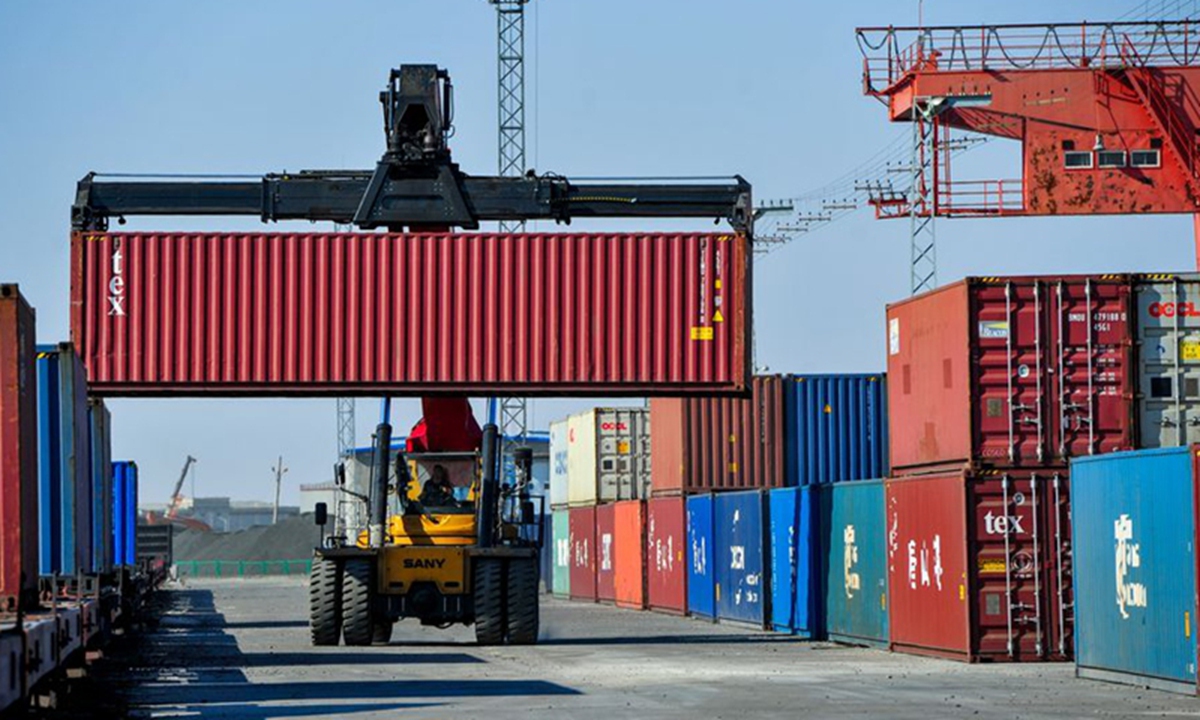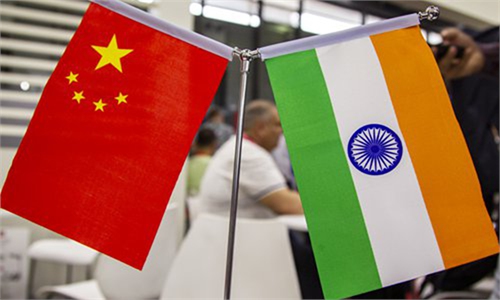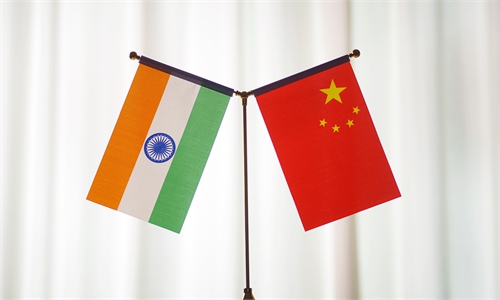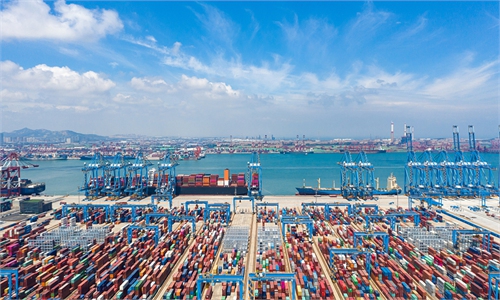
File photo: Xinhua
After a nearly five-year stagnation, India and Canada recently decided to reboot their trade negotiations during Canadian Trade Minister Mary Ng's visit in India. The seeming normal interaction between countries, however, has been interpreted by some as engagement between "democratic nations" aiming to counter China.
Ng said in an interview in New Delhi that "the situation that is in front of us really shows the importance of partnering with allies on building resilient supply chains", meanwhile she claimed that "trade is a proxy for democratic values", according to the Canadian Financial Post.
The move comes against the backdrop of Canada planning to deepen commercial ties with the Indo-Pacific region and India enhancing efforts to seek bilateral trade partnerships to offset its reluctance to join regional trade frameworks. There's no objection for India and Canada or other economies to pursue stronger trade ties, but waving the flag of democracy and taking the chance to peddle their geopolitical antagonistic intentions will not end well.
First and foremost, the standards of democracy are not defined by the West as they arrogantly believe. If anything, behind their "democracy" lecture giving around the world, it is their pure hegemonic mindset which is playing the role to serve only the interest of the Western rich countries.
Frankly speaking, Western countries have never chosen their trading partners by so-called democratic values. Only when it is in line with their strategic targets, will they wield an ideology stick to rope in allies and to attack others.
Meanwhile, Canada itself maintains important trade relations with China - Canada's second largest trading partner. These trade ties are built on market demands from both sides, instead of a "gift" bestowed by one side to the other.
Moreover, "partnering with allies on building resilient supply chains" is anything but an easy task for Canada and India, especially when it comes to attempting to reduce dependence on China or counter so-called China's influence.
As for India, the South Asian economy maintains high reliance on China, especially on trade and manufacturing. In 2021, bilateral trade between China and India surpassed the $100 billion milestone for the first time in spite of New Delhi's irrational moves attempting to crack down on Chinese investment and curb activities in economic and trade areas; not to mention India's clear capacity shortfall to compete with China among the global industrial chain.
One latest example is the US-led QUAD clique which has been touting a so-called Supply Chain Resilience Initiative, which so far be all spin and no substance.
The broader context here is that China has been the largest trading partner for over 120 countries and regions, supporting the global trade with stable production amid the COVID-19 pandemic. China is now the only country in the world to obtain all the industrial categories listed in the United Nations industrial classification.
Enhancing ties between so-called democratic economies won't sabotage China's role among the global trading system; instead, it is joining hands with China which will help restore the vitality of the global trade and boost the global recovery from the once-in-a-century health crisis.



